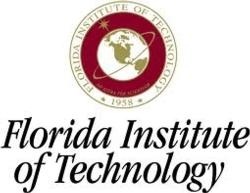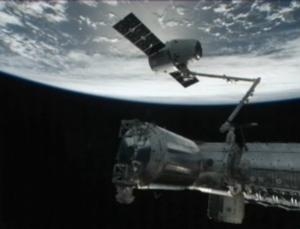Thu, Feb 21, 2013
Proposal Would Seek To Better Understand Alzheimer's Disease
Florida Institute of Technology researchers have won a prestigious grant enabling their biology experiment to travel on a flight to the International Space Station (ISS). Their proposal, "Self-Assembly in Biology and the Origin of Life (SABOL): A Study into Alzheimer's," was just one of eight proposals chosen by Space Florida and NanoRacks, LLC, in the ISS Research Competition. For the International Space Station experiment, the winners receive payload transportation to the ISS via an upcoming SpaceX Falcon 9 rocket launch from Cape Canaveral Air Force Station. Launch is currently slated for September 2013.

Florida Tech faculty researchers are former astronaut Sam Durrance, professor of physics and space sciences; and College of Engineering faculty members Daniel Kirk and Hector Gutierrez. They will work with about 30 science and engineering students to design and develop the payload and analyze the data. "We seek to gain an improved understanding of the origin of life on our planet and of Alzheimer's disease, and provide an opportunity to apply this new understanding for the betterment of humanity," said Durrance.
Durrance leads the biological science experiment, which will investigate the spontaneous assembly of amyloid proteins into long linear fibers. Postmortem studies of neurons taken from Alzheimer's disease victims show accumulated linear amyloid fibers composed of either Tau proteins or amyloid-beta peptides. Both can self-organize in solution through colloidal interactions.
However, the mechanisms of amyloid fiber assembly are difficult to study on Earth because the protein fibers settle, which prevents further growth. In weightlessness they should stay suspended and continue growing with multiple fibers wrapping around each other into helical fiber bundles. Analyzing these fiber bundles should improve the understanding of the internal structure of the amyloid fibers. The researchers believe that understanding the colloidal chemistry and biochemistry of amyloid fiber formation should lead to strategies for controlling the process.

The experiment will include about nine different incubation periods from one to 30 days during orbit operations. When the buffer solution and protein powder are mixed and the temperature is set, it takes about a day to agglomerate into protein spheres, a few days to form fibers and a week or more to become tangling fibers, which in 30 days on Earth, would settle.
The experiment, to be contained in a payload unit called a NanoLab Module—a four-inch cube—can be manipulated and monitored from Florida Tech laboratories while in flight.
(NASA image Dragon at ISS)
More News
Aero Linx: Model Aeronautical Association of Australia MAAA clubs are about fun flying, camaraderie and community. For over 75 years, the MAAA has been Australia’s largest fl>[...]
Touchdown Zone Lighting Two rows of transverse light bars located symmetrically about the runway centerline normally at 100 foot intervals. The basic system extends 3,000 feet alon>[...]
“Discovery and innovation are central to our mission at Virgin Galactic. We’re excited to build on our successful record of facilitating scientific experiments in subor>[...]
How To Get A Story On Aero-TV News/Feature Programming How do I submit a story idea or lead to Aero-TV? If you would like to submit a story idea or lead, please contact Jim Campbel>[...]
Student Pilot Reported That During Rotation, “All Of A Sudden The Back Of The Plane Kicked To The Right..." Analysis: The student pilot reported that during rotation, “>[...]
 ANN's Daily Aero-Linx (05.02.24)
ANN's Daily Aero-Linx (05.02.24) ANN's Daily Aero-Term (05.02.24): Touchdown Zone Lighting
ANN's Daily Aero-Term (05.02.24): Touchdown Zone Lighting Aero-News: Quote of the Day (05.02.24)
Aero-News: Quote of the Day (05.02.24) ANN FAQ: Contributing To Aero-TV
ANN FAQ: Contributing To Aero-TV NTSB Final Report: Cirrus Design Corp SR20
NTSB Final Report: Cirrus Design Corp SR20




